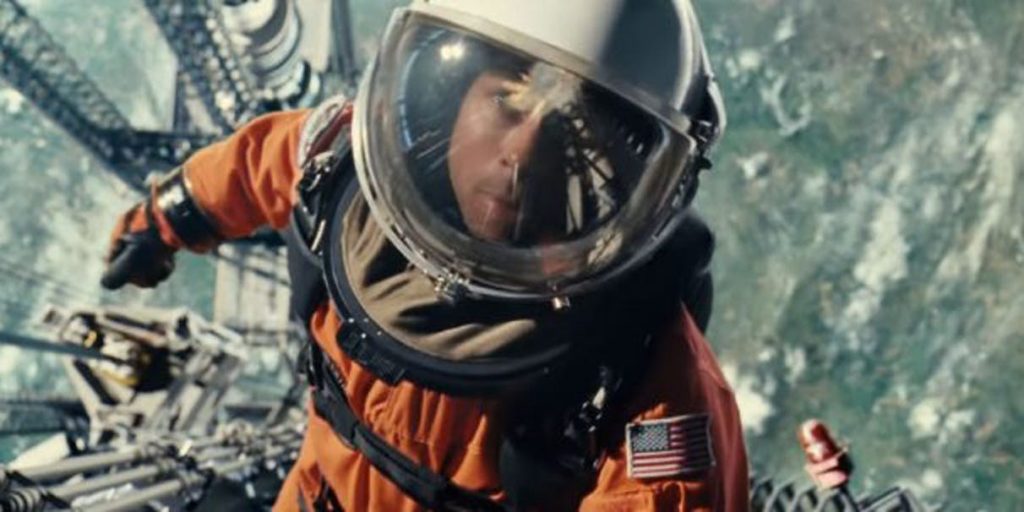No one sets out to make the next 2001: A Space Odyssey. The task is too large and would be reviled by general audiences who expect more flair and fun from a science fiction cinematic experience these days. The cerebral space exploration genre is so rarely traversed. We’ve only seen two other similar films in this decade – namely Gravity (2013) and Interstellar (2014).
Ad Astra tells the story of astronaut Roy McBride (Brad Pitt) as he is commissioned to take a dangerous journey through our galaxy to find his missing father (Tommy Lee Jones) and discover what happened to a doomed expedition from decades ago that may have fatal consequences for the Earth today.
2019 has signified the return of Brad Pitt. After his movie-stealing role in Once Upon a Time in Hollywood and now his commanding performance here in Ad Astra, he has truly marked his comeback. He is front and center for the majority of this film, much of it showing him traveling alone through space. While this trope may work better for novels than movies, we do get his constant inner monologue that spouts his stresses, poetic thoughts and even insane ramblings.

This is a movie about the human condition in times of immense pressure, often in literal life of death situations. It’s stressed often in Ad Astra that Roy was chosen because of his temperament. His calm heart beat rarely reveals his true anxiety about his given circumstances. However, you see the controlled aggression and worry in his eyes. The art of Pitt’s performance is all about subtlety.
Director James Gray (The Immigrant, The Lost City of Z) knows how to pull in the expanse of the cosmos and make it feel accessible. Stunning visuals of planetary systems are a requirement in any movie of this type. Yet, Ad Astra not only excels in that category, but also the closed-space environments of the bases within. Credit to cinematographer Hoyte Van Hoytema (Interstellar) for crafting each shot perfectly and capturing depth and scale, whether it’s in the orbit of Neptune or confined to the tight interior of a ship.
The world-building accomplished in this two hour movie is astounding. The opening crawl states that Ad Astra takes place in the near future. Yet, it’s still a sci-fi film that needs some new elements to feel fresh. For example, this is a future where the moon and to a slightly lesser extent, Mars, is inhabited and commercialized. The moon base is complete with hotels, fast food establishments and all sorts of modern conveniences. Though, as with any type of land grab opportunity, different nations battle for dominance and a power balance is still unruly. The world created doesn’t feel far-fetched and never makes you think it’s irrational, only realized in a matter of time.
Given that much of the action takes place in space with no sound, the score becomes the focal point. Max Richter has crafted an epic, yet personal composition that frames every scene that will manipulate your emotions.
Ad Astra, over time, has the potential to be called a masterpiece. It’s slow-moving but never boring. Its pacing and diversion away from the greater story is sure to turn many viewers off. The end may be unfulfilling for people, but the journey and the character development for McBride cannot be denied. I can recommend this to a limited amount of people, but for those who care about introspective and beautiful experiences, see Ad Astra in IMAX and see it soon. B+









Comments are closed.